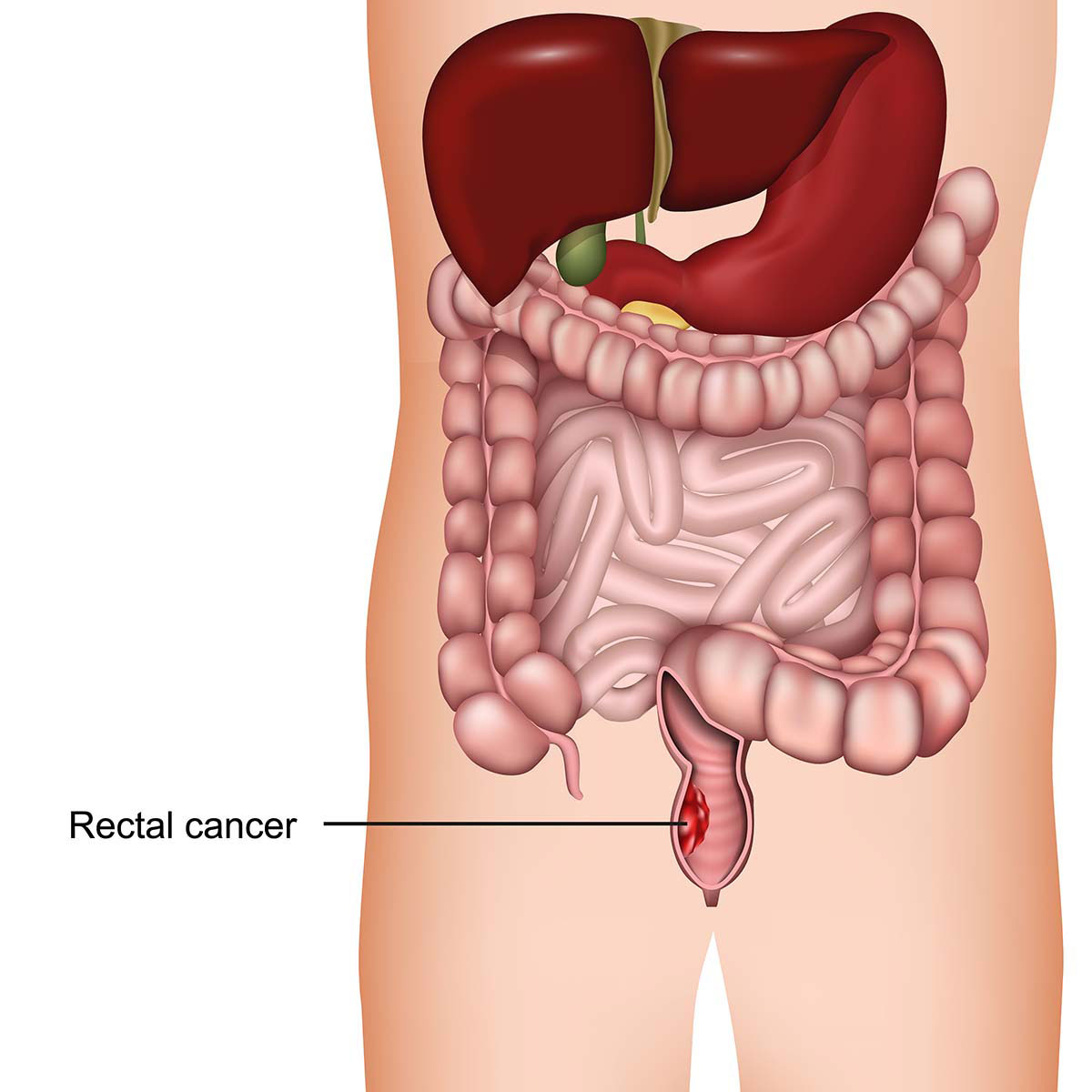
Rectal cancer


Overview
The rectum is the last part of the intestinal tract which starts from the end part of the colon down to the anus. Rectal cancer begins at the rectum. When cancer occurs inside the colon it is called colon cancer. When both rectal and colon cancer occur together, it is called “colorectal cancer”. Rectal and colon cancer may have a lot of similarities but they have different treatments. The reason is because the rectum is quite attached to the other organs which makes it difficult to surgically remove rectal cancer.
Symptoms
Rectal cancer may manifest with many signs and symptoms such as:
- Changes in bowel movement such as diarrhea or constipation or bowel movement that has become more frequent.
- Feeling of being unable to empty the large bowel
- Abdominal pain or cramping
- Maroon-colored or black-colored stool
- Narrow stool
- Rectal bleeding
- Unexplained weight loss
- Fatigue
If these symptoms persist, consult your doctor.
Causes
Rectal cancer starts when the DNA of the healthy cells mutate causing uncontrolled duplication, resulting in forming a mass of cells also known as a tumor. This tumor then starts to invade and destroy the healthy cell and could metastasize (spread to other parts of the body).
Inherited gene mutations that increase the risk of colon and rectal cancer
There are two common syndromes of colorectal abnormalities which relates to higher risk of developing colorectal cancer:
- Hereditary Nonpolyposis Colorectal Cancer (HNPCC) or Lynch syndrome. May have higher risk to acquire colon cancer and other types of cancers in people, even those who are less than 50 years old.
- Familial Adenomatous Polyposis (FAP). This is a rare condition which causes colon and rectum to have multiple polyps and has a higher chance of developing colon or rectal cancer before 40 years old.
If you have a family history of colorectal cancer, consult your doctor to perform proper genetic tests or other diagnostic tests.
Risk factors
Rectal and colon cancer may have the same risk factors such as.
- Age. Colorectal cancer may be acquired even before the age of 50 but most people with this cancer are older than 50 years old.
- African-American race. Being African-American has a higher risk of developing colorectal cancer.
- A personal history of colorectal cancer or polyps. Having a history of colon cancer, rectal cancer or adenomatous polyps.
- Inflammatory bowel disease. Having ulcerative colitis or Crohn’s disease which are chronic inflammatory diseases of the rectum and colon.
- Family history of colorectal cancer. People with a first-degree relative (parent, sibling, or child) with colon cancer increase the risk of developing colon cancer.
- Eating less vegetables. Eating diet low in vegetables could put patients at risk of developing colon cancer and rectal cancer. Certain studies have revealed that high consumption of red meat and processed meat could also be a contributing factor for colon cancer to occur.
- Inactive lifestyle. People living a sedentary lifestyle are likely to have colon cancer. Consistent physical activities may decrease the chance of developing the disease.
- Diabetes. Having a poorly managed type 2 diabetes.
- Radiation therapy for previous cancer. Radiation therapy applied to the abdomen for previous cancer treatment increases the chance of having colon cancer.
- Obesity. Being obese puts patients at risk of colon cancer
- Smoking. Smoking increases the risk of having colon cancer.
- Alcohol drinking. Heavy consumption of alcohol raises the risk of getting colon cancer
Contact Information
service@vejthani.com






















